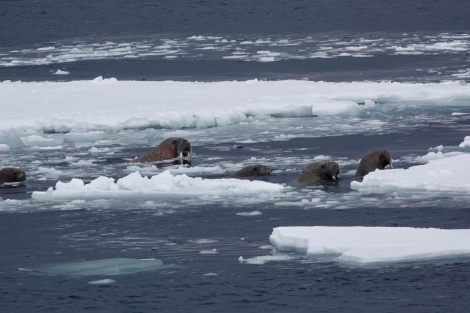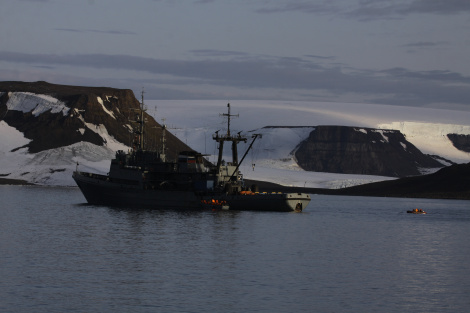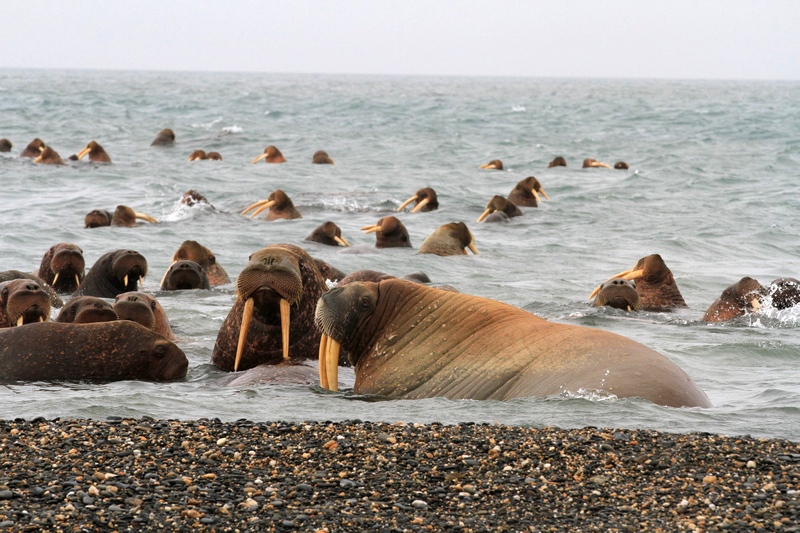
A female walrus demonstrated the lengths moms — animal and human alike — will go in order to protect their offspring when she sank a Russian research boat that came close to her calves. The incident occurred on September 18, 2019, when a team of sailors and scientists from Russia's Northern Fleet and Geographical Society were sailing to Wilczek Island in the Arctic Ocean.
To reach the island, the team transferred from their expedition vessel, Altai, to an inflatable landing boat. However, as they were sailing to shore, a female walrus suddenly emerged from the ocean and lunged at their rubber dinghy. Her sharp, large teeth cut through the plastic, causing the boat to fill up with water and sink. Fortunately, the researchers were close to Wilczek Island's Cape Geller and managed to jump out and swim to land. Experts from the Russian Geographical Society later said the marine mammal's aggressive behavior was a defensive mechanism to protect her young.

Though unsettling, the incident was not enough to derail the scientists from continuing their mission of surveying Arctic glaciers and wildlife in Franz Josef Land. The archipelago, which includes Wilczek Island, comprises 192 islands formed from marine deposits of the Early and Middle Jurassic age. The mostly uninhabited ice-covered landmasses, with a total area of 16,134 km2, are home to hundreds of wildlife species.
The team also hopes to reconstruct some of the first scientific expeditions to explore the remote region. In particular, they are looking for remains of Russian Arctic explorer Georgy Sedov, who died in 1914 while attempting to reach the North Pole. The scientists also plan to retrace the path taken by an Austro-Hungarian expedition to the archipelago in 1874, using an eyewitness account written by one of the explorers, Julius von Payer. Hopefully, the rest of the journey will be incident—and walrus — free.

Endemic to the Arctic Circle, walruses are very social animals and are often found laying on the ice with hundreds of companions. The marine mammals' iconic long tusks, present in both males and females, grow throughout their almost 40-year lifespan and often extend up to three feet. Besides helping walruses protect their territory, the teeth also assist in lifting their massive bodies out of the frigid waters and enable the animals to carve breathing holes into the ice from below. Though they are now a protected species, the majestic mammals were once mercilessly hunted for their tusks, oil, skin, and meat.
Credit: arstechnica.com, vice.com, www.rgo.ru
